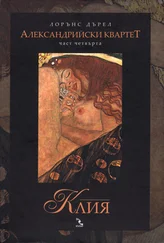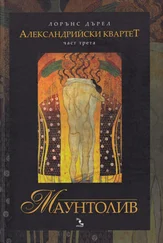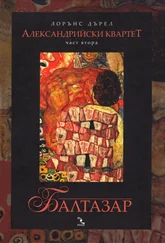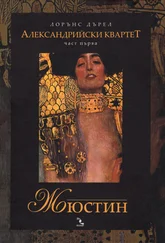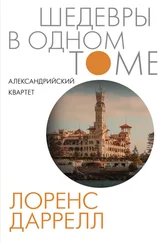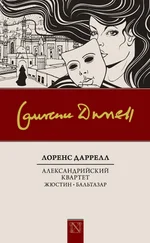Лоренс Даррелл - Prospero's Cell
Здесь есть возможность читать онлайн «Лоренс Даррелл - Prospero's Cell» весь текст электронной книги совершенно бесплатно (целиком полную версию без сокращений). В некоторых случаях можно слушать аудио, скачать через торрент в формате fb2 и присутствует краткое содержание. Жанр: Проза, на английском языке. Описание произведения, (предисловие) а так же отзывы посетителей доступны на портале библиотеки ЛибКат.
- Название:Prospero's Cell
- Автор:
- Жанр:
- Год:неизвестен
- ISBN:нет данных
- Рейтинг книги:4 / 5. Голосов: 2
-
Избранное:Добавить в избранное
- Отзывы:
-
Ваша оценка:
- 80
- 1
- 2
- 3
- 4
- 5
Prospero's Cell: краткое содержание, описание и аннотация
Предлагаем к чтению аннотацию, описание, краткое содержание или предисловие (зависит от того, что написал сам автор книги «Prospero's Cell»). Если вы не нашли необходимую информацию о книге — напишите в комментариях, мы постараемся отыскать её.
Prospero's Cell — читать онлайн бесплатно полную книгу (весь текст) целиком
Ниже представлен текст книги, разбитый по страницам. Система сохранения места последней прочитанной страницы, позволяет с удобством читать онлайн бесплатно книгу «Prospero's Cell», без необходимости каждый раз заново искать на чём Вы остановились. Поставьте закладку, и сможете в любой момент перейти на страницу, на которой закончили чтение.
Интервал:
Закладка:
Now that the robola is safely on the way, the Count can turn his attention to the kitchens with their gleaming copper ware and dungeon-like ovens. Here he busies himself with Caroline and Mrs. Zarian in the manufacture of mustalevria — hat delicious Ionian sweet or jelly which is made by boiling fresh must to half its bulk with semolina and a little spice. The paste is left to cool on plates and stuck with almonds; and the whole either eaten fresh or cut up in slices and put away in the great store cupboard.
Sykopita, Zarian's favourite fig cake, will come later when the autumn figs are literally bursting open with their own ripeness. But for the time being there are conserves of all kinds to be made-orange-flower preserve and morella syrup. While the Count produces for the table a very highly spiced quince cheese, black and sticky, but very good.
The ravished vineyards are a sad sight on the brown earth of the property. The Count pauses from time to time in his passage between the kitchen and the dining-room terrace to contemplate them. He is happy with the full weight of his resignation: because October is coming with its first sweep of rain and mist. The remaining vine-leaves and fig-leaves — strange butterfly-like shapes against the massive platinum-grey trunks — will be gathered for fodder. The earth will die shabbily and dully in russet patches, tessellating the landscape with its red squares and octagons. In November the cleaning of guns, the first wood fires, and the putting away of summer clothes. Then the earth will spin inexorably into winter with its gales and storms — the wild duck screaming from Albania, the seas shrieking and whistling off the barren northern point beyond Turde-Dove Island.
These few days pass in a calm so absolute, that to regret their passing would be unworthy of them. Zarian is bound for Geneva next week. Nimiec for Poland until next spring.
We picnic for supper on these warm nights by the Myrtiotissa monastery. Spiro lights a fire of pine-branches and twigs, and the three wicker hampers of the Count are brimmed with food and drink. In the immense volume of the sea's breathing our voices are restored to their true proportion — insignificant, small and shrill with a happiness this landscape allows us but does not notice. The firelight etches the faces so clearly. The Count with his bright eyes looking over N.'s shoulder as she draws. Theodore's golden beard lowered over a pool in complete abstraction. Nimiec and Caroline walking with linked fingers into the sea. Zarian's lips shiny with wine, his silver scruff of hair flying like a halo round his head. Spiro's great charred features. Everyone. The night around us edges slowly on towards the morning, silent except for the noise of the sea, and the sleepy chirp of cicadas in the plane-tree who have mistaken our fire for sunlight. 'You have noticed how we talk less and less together as the days go on,' says the Count. 'It is not because we have less to say to each other, it is because language becomes inadequate to our parting. I do not know when we shall meet again. Will you all be back by next spring I wonder?'
It is already very late, and the donkeys have stumbled off home with the hampers. Theodore lies asleep in the firelight. His lips move slowly. Zarian has taken the guitar from Bocklin and has started to play it inexpertly. He is trying to find the key for the little island song which Theodore has taught us.
'Sea, you youth-swallower,
O poison-bearing element, Sea,
Who make our island folk
Always be wearing their black clothes.
Have you not had enough of it,
Sea, in all this long time,
With the bodies you have swallowed
Down in your insatiable waves?'
Presently Theodore will wake and ask Caroline to sing 'Greensleeves' and 'Early One Morning — airs sounding in all that emptiness so Lydian and remote coming from those American lips with their limping southern drawl.
To-morrow we are separating.
1.1.41
A postcard from the Count: 'Christmas Day. I spent it alone in happy memory of the year before when we walked across the northern marshes and you were attacked by a wounded hare-remember? To remind myself (and hence you also) of our perpetual spring I gathered a bunch of flowers from the valley — flowers from every season. Cyclamen and snowdrop. February's irises and a jonquil, cinquefoil, bugloss, corn marigold, orange blossom, clover, and wild roses. Spiro has asked one of his pilots to fly them to you so you will have them by now. They are my invitation for next year. Don't forget us.'
VIII. EPILOGUE IN ALEXANDRIA
The sightless Pharos turns its blind eye upon a coast, featureless, level and sandy. One thinks of Nelson on his column turning a blinded eye across the miles of English mist to where by the deserted gun batteries of Aboukir the sea runs thin and green. In these summer twilights the city lies in its jumble of pastel tones, faintly veined like an exhausted petal. Flocks of pigeons wheel in the last sunlight, turning and falling, like a shower of confetti when the light strikes against their wings. The last landmark on the edge of Africa. The battleships in their arrowed blackness turn slowly in the harbour. The loss of Greece has been an amputation. All Epictetus could not console one against it.
Here we miss Greece as a living body; a landscape lying up close against the sky, suspended on the blue lion-pads of mountains. And above all, we miss the Eye: for the summers of indolence and deduction on the northern beaches of our island — beaches incessandy washed and sponged by the green Ionian — taught us that Greece was not a country but a living eye. 'The Enormous Eye' Zarian used to call it. Walking in those valleys you knew with complete certainty that the traveller in this land could not record. It was rather as if he himself were recorded. The sensation of this immense hairless recording eye was everywhere; in the ringing blue sky, the temples, the supple brushes of cypress, the sun beating in a withering hypnotic dazzle on the statues with curly stone hair and blunt sagacious noses. Everything was the subject of the Eye. It was like a lens fitting into the groove of the horizon. Nowhere else has there ever been a landscape so aware of itself, conforming so marvellously to the dimensions of a human existence. At Epidaurus, for example, it is not the theatre that obsesses one or the temples, but the enfolding circle of small hills, as if the very land had conformed to the architect's plan: all contours, no edges, and only the faintest engraving of ilex and olive along the sky.
Something of all this lives on in the keen Athenian faces of our friends — faces so long turned towards the preoccupation of Greece that you can read everything in them: the dark uncombed blue of the Cyclades slowly uncurling about the flanks of Mykonos and Delos: the dazzling windmills and the grey springs. But they are here now like ghosts of the old lucid past in the aura of that enormous Eye — Stephan sailing his boat like a demon, half seas over in blue and gold; girls like Elie with dark slanting arms and long olive legs; the shaggy islanders in their coloured belts; caves echoing to the suck and swish of the water; the long rows of coloured caiques snubbing at anchor in the oilgrey waters of the port; the church bells ringing. Meeting them in these crooked streets one is struck by the potentiality of the drama which the Greeks this time have offered to the world. Maro, the human and beautiful, in her struggle against apathy; the drawn face of Eleftheria with its haunting eyes reading the last few lines of her great poem; the solemn face of Seferiades with its candour and purity ('we are the dying limb, withering on the body of the tree cut down'); Alecco, Spiro, Paul. In them the thousand and one images of that Greece of ours crystallize into pin-points of light: the book-lined room where the woman of Zante was read: the terrace with the figs and the sound of running water: Tinos where the red sails walk down the main street: Corinth with its vermin: Argos and Thebes with their retzina: Kalamata choked in vines: the warm scent of bruised sage on the Arcadian hills.
Читать дальшеИнтервал:
Закладка:
Похожие книги на «Prospero's Cell»
Представляем Вашему вниманию похожие книги на «Prospero's Cell» списком для выбора. Мы отобрали схожую по названию и смыслу литературу в надежде предоставить читателям больше вариантов отыскать новые, интересные, ещё непрочитанные произведения.
Обсуждение, отзывы о книге «Prospero's Cell» и просто собственные мнения читателей. Оставьте ваши комментарии, напишите, что Вы думаете о произведении, его смысле или главных героях. Укажите что конкретно понравилось, а что нет, и почему Вы так считаете.


